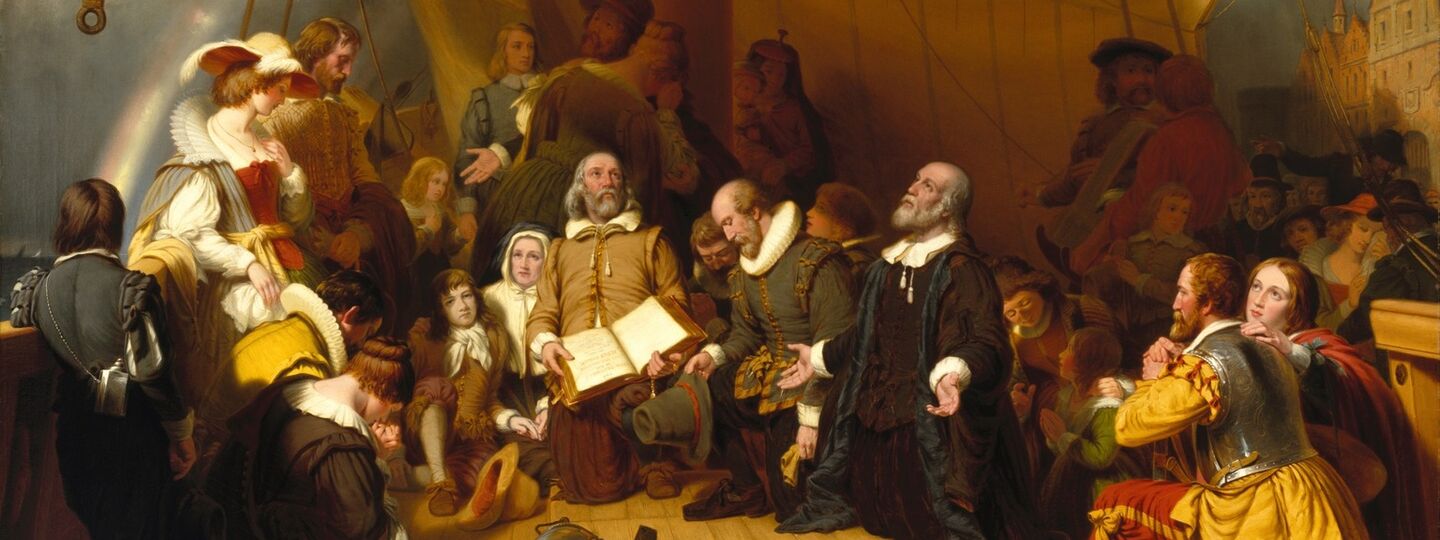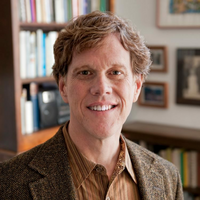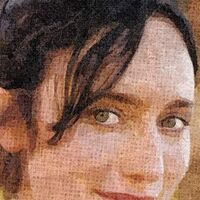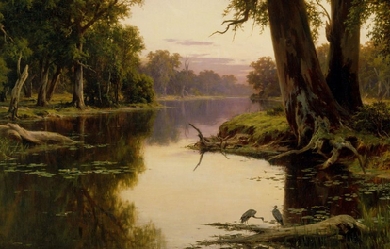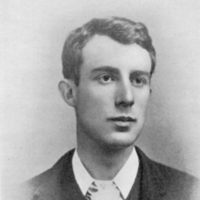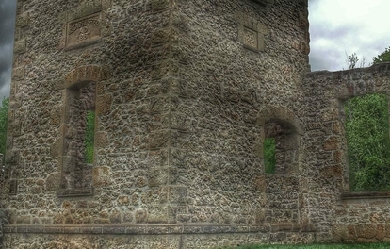
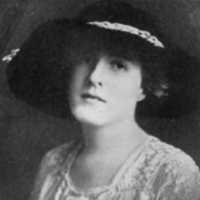
Agnes Ethelwyn Wetherald was born of English-Quaker parents at Rockwood, Ontario, April 26th, 1857. Her father was the late Rev. William Wetherald, who founded the Rockwood Academy about the middle of the last century, and was its principal for some years. He was a lover of good English, spoken and written, and his talented daughter has owed much to his careful teaching. He was the teacher whom the late James J. Hill, the railway magnate, had held in such grateful remembrance. Additional education was received by Miss Wetherald at the Friends' Boarding School, Union Springs, N.Y., and at Pickering College. Miss Wetherald began the writing of poetry later in life than most poets and her first book of verse, The House of the Trees and Other Poems, did not appear until 1895. This book at once gave her high rank among women poets. Prior to this, she had collaborated with G. Mercer Adam on writing and publishing a novel, An Algonquin Maiden, and had conducted the Woman's Department in The Globe, Toronto, under the nom de plume, 'Bel Thistlewaite.' In 1902, appeared her second volume of verse, Tangled in Stars, and, in 1904, her third volume, The Radiant Road. In the autumn of 1907, a collection of Miss Wetherald's best poems was issued, entitled, The Last Robin: Lyrics and Sonnets. It was warmly welcomed generally, by reviewers and lovers of poetry. The many exquisite gems therein so appealed to Earl Grey, the then Governor-General of Canada, that he wrote a personal letter of appreciation to the author, and purchased twenty-five copies of the first edition for distribution among his friends. For years Miss Wetherald has resided on the homestead farm, near the village of Fenwick, in Pelham Township, Weland county, Ontario, and there in the midst of a large orchard and other rural charms, has dreamed, and visioned, and sung, pouring out her soul in rare, sweet songs, with the naturalness of a bird. And like a bird she has a nest in a large willow tree, cunningly contrived by a nature-loving brother, where her muse broods contentedly, intertwining her spirit with every aspect of the beautiful environment.
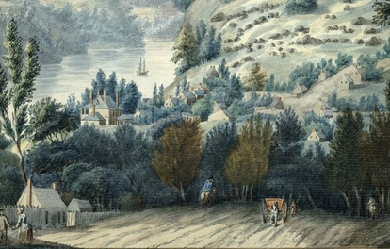

Florence Randall Livesay, daughter of Stephen and Mary Louisa Randal, was born at Compton, P. Q., and educated at Compton Ladies' College, now King's Hall. She taught for one year in a private school in New York, and subsequently for seven years was a member of the staff of the Evening Journal, Ottawa,–editor of the Woman's Page. In 1902, the Hon. Joseph Chamberlain requested Canada to send some teachers to the Boer Concentration Camps and Miss Randal, offering her services, was one of the forty chosen. She remained for one year and then returned to Canada, locating at Winnipeg. She joined the staff of the Winnipeg Telegram, and three years later that of the Manitoba Free Press. For several years she edited the Children's Department of the latter, but now writes as a 'free lance.' In 1908, she married Mr. J. Fred. B. Livesay of Winnipeg, Manager and Secretary of the Western Associated Press, Limited, and is now the mother of two girls. Of recent years, Mrs. Livesay has contributed poems, short stories and articles to Canadian and American magazines and journals, and a volume of her verse, entitled Songs of Ukraina is now being published by J. M. Dent & Sons. Mrs. Livesay's folk songs translated from the Ruthenian are unusual and notable, but her poetical gift is quite as discernible in her other poems. She has the imagination and the practiced touch of the artist., daughter of Stephen and Mary Louisa Randal, was born at Compton, P. Q., and educated at Compton Ladies' College, now King's Hall. She taught for one year in a private school in New York, and subsequently for seven years was a member of the staff of the Evening Journal, Ottawa,–editor of the Woman's Page. In 1902, the Hon. Joseph Chamberlain requested Canada to send some teachers to the Boer Concentration Camps and Miss Randal, offering her services, was one of the forty chosen. She remained for one year and then returned to Canada, locating at Winnipeg. She joined the staff of the Winnipeg Telegram, and three years later that of the Manitoba Free Press. For several years she edited the Children's Department of the latter, but now writes as a 'free lance.' In 1908, she married Mr. J. Fred. B. Livesay of Winnipeg, Manager and Secretary of the Western Associated Press, Limited, and is now the mother of two girls. Of recent years, Mrs. Livesay has contributed poems, short stories and articles to Canadian and American magazines and journals, and a volume of her verse, entitled Songs of Ukraina is now being published by J. M. Dent & Sons. Mrs. Livesay's folk songs translated from the Ruthenian are unusual and notable, but her poetical gift is quite as discernible in her other poems. She has the imagination and the practiced touch of the artist.
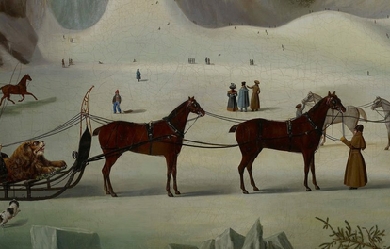
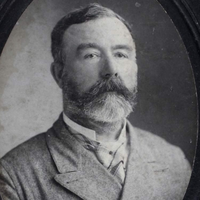
Edward William Thomson was born in Toronto township, county of Peel, Ontario, February 12th, 1849. His father was William Thomson, grandson of Archibald Thomson, the first settler in Scarboro. His grandfather Edward William Thomson, was present at the taking of Detroit, and served with distinction under Brock at Queenston Heights; and was afterwards well known in Upper Canada as Col. E. W. Thomson of the Legislative Council, and as the one successful opponent of William Lyon Mackenzie in an election for the Legislature. The mother of the present E. W. Thomson was Margaret Hamilton Foley, sister of the Hon. M. H. Foley, twice Postmaster-General of the united Canadas. The future poet was educated at the Brantford Grammar School, and at the Trinity College Grammar School at Weston; but when about fourteen years of age, he was sent to an uncle and aunt in Philadelphia and given a position in a wholesale mercantile house as 'office junior.' Finding this employment very uncongenial, he enlisted in the Union army, in October, 1864, as a trooper in the 3rd Pennsylvania Cavalry. This corps was engaged twice at Hatcher's Run, and was with Grant when he took Petersburgh. Discharged in August, 1865, he returned to the parental home at Chippewa, Ontario. In June, 1866, when the Fenians raided Upper Canada, young Thomson promptly enlisted in the Queen's Own, and was in action at the Ridgeway fight. The following year he entered the profession of Civil Engineering, and in 1872 was registered a Provincial Land Surveyor. He practised his profession until December, 1878, when at the invitation of the Hon. George Brown, he joined the staff of The Globe, Toronto, as an editorial writer. Four years later the Manitoba boom attracted him, and he practised surveying for two or three years in Winnipeg. In 1885, he rejoined The Globe staff, but retired again in 1891, because of his opposition to the Liberal policy of Unrestricted Reciprocity. Shortly afterwards he was invited to join the staff of the Youth's Companion. He accepted and remained for eleven years. Since 1903, he has lived in Ottawa, employed as a newspaper correspondent and engaged in literary work.The Many-Mansioned House and Other Poems was issued in 1909. His poems, like his short stories, are lucid, vital, original. References http://digital.library.upenn.edu/women/garvin/poets/thomson.html
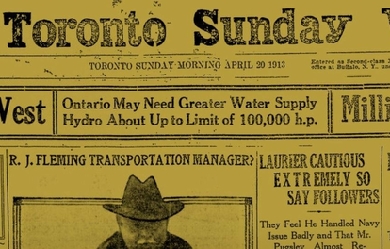
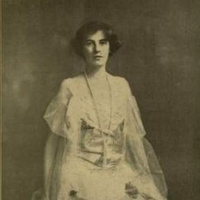
In a very real sense Miss Laura Elizabeth McCully is a Toronto writer, as, with the exception of one academic year in the United States and a few months in Ottawa, she has lived all her life in this city. She is a grand niece of the late Hon. John McCully, of Truro, Nova Scotia, one of the Fathers of Confederation; and is the daughter of Samuel Edward McCully, M.D., and Helen (Fitzgibbon) McCully. Her father is of Manx descent, and her mother is a descendant of the late James McBride of Halton county, Ontario, magistrate, who was one of the pioneers of this province, and who heroically cleared off forest and left to his heirs, one thousand acres of valuable farm lands. Miss McCully's poetry is enriched by classical illustrations, and expressed in forceful and melodious language. Her imagination relates us to the universe and to humanity. Wordsworth found new lessons in the fields and woods, and taught them; Lanier made trees, flowers and clouds our intimate friends; when we read Miss McCully's nature poems we are not conscious of the moralizing of the poet, we are in the glens ourselves looking at the afterglow, with the purity, the glory, the growth spirit and the transforming beauty of nature flowing into our lives. In a few flaming lines her stories reveal the love, the despair, and the ultimately triumphant faith of humanity. With tender pathos she unveils the evils of social and industrial conditions, and in clear tones arouses each soul, and makes it conscious of the splendour of the better conditions ahead, and thrills it with the determination to achieve for justice, freedom, and truth. – JAMES L. HUGHES, LL. D.
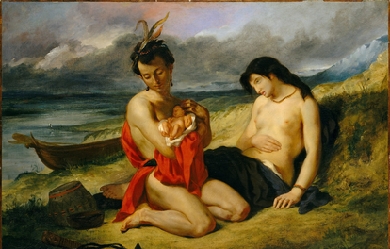
Paula Gunn Allen (October 24, 1939 – May 29, 2008) was a Native American poet, literary critic, activist, professor, and novelist. Of mixed-race European-American, Native American, and Arab-American descent, she identified with her mother's people, the Laguna Pueblo and childhood years. She drew from its oral traditions for her fiction poetry and also wrote numerous essays on its themes. She edited four collections of Native American traditional stories and contemporary works and wrote two biographies of Native American women.

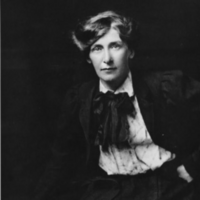
Cicely Mary Hamilton (née Hammill, 15 June 1872– 6 December 1952), was an English actress, writer, journalist, suffragist and feminist, part of the struggle for women’s suffrage in the United Kingdom. She is now best known for the play How the Vote was Won, which sees all of England’s female workers returning to their nearest male relative for financial support.. She is also credited as author of one of the most frequently performed suffrage plays, A Pageant of Great Women (1909), which first put Jane Austen on the stage as one of its “Learned Women.” Biography Cicely Mary Hammill was born in Paddington, London and educated in Malvern, Worcestershire. After a short spell in teaching she acted in a touring company. Then she wrote drama, including feminist themes, and enjoyed a period of success in the commercial theatre. In 1908 she and Bessie Hatton founded the Women Writers’ Suffrage League. This grew to around 400 members, including Ivy Compton-Burnett, Sarah Grand, Violet Hunt, Marie Belloc Lowndes, Alice Meynell, Olive Schreiner, Evelyn Sharp, May Sinclair and Margaret L. Woods. It produced campaigning literature, written by Sinclair amongst others, and recruited many prominent male supporters. Hamilton supplied the lyrics of “The March of the Women”, the song which Ethel Smyth composed in 1910 for the Women’s Social and Political Union. In the days before radio, one effective way to get a message out into society and to have it discussed was to produce short plays that could be performed around the country, and so suffrage drama was born. Elizabeth Robins’s Votes for Women and Cicely Hamilton and Christopher St. John’s How the Vote Was Won are two predominant examples of the genre. Hamilton also wrote A Pageant of Great Women, a highly successful women’s suffrage play based on the ideas of her friend, the theatre director Edith Craig. Hamilton played Woman while Craig played the painter Rosa Bonheur, one of the 50 or so great women in the play. It was produced all over the UK from 1909 until the First World War. Hamilton was a member of Craig’s theatre society, the Pioneer Players. Her play Jack and Jill and a Friend was one of the three plays in the Pioneer Players’ first production in May 1911. During World War I Hamilton initially worked in the organisation of nursing care, and then joined the army as an auxiliary. Later she formed a repertory company to entertain the troops. After the war, she wrote as a freelance journalist, particularly on birth control, and as a playwright for the Birmingham Repertory Company. In 1938 she was given a Civil List pension. Hamilton’s Theodore Savage (1922, vt. Lest Ye Die 1928) is a science-fiction novel about a Britain devastated by a war. In July 2017, the Finborough Theatre staged the first London production of Hamilton’s play 'Just to Get Married’ in over 100 years. It received positive reviews (4 stars) from The Times The Observer The Evening Standard and The New York Times The production was directed by Melissa Dunne and the cast included Tania Amsel, Nicola Blackman, Joanne Ferguson, Lauren Fitzpatrick, Jonny McPherson, Stuart Nunn, Philippa Quinn, Simon Rhodes and Joshua Riley.

Denis Florence MacCarthy (1817–1882) was an Irish poet, translator, and biographer, born in Lower O’Connell Street, Dublin. Life MacCarthy was born in Lower O’Connell Street, Dublin, on 26 May 1817, and educated there and at St Patrick’s College, Maynooth. He acquired an intimate knowledge of Spanish from a learned priest, who had spent much time in Spain, which he was later to turn to good advantage. In April 1834, before turning seventeen, MacCarthy contributed his first verses to the Dublin Satirist. He was one of a coterie of writers whose works appeared in the Nation, which had been started by Charles Gavan Duffy in 1842. Writing under the pseudonym “Desmond”, most of MacCarthy’s patriotic verse appeared in this organ. In 1846 he was called to the Irish bar, but never practised. In the same year he edited The Poets and Dramatists of Ireland, which he prefaced with an essay on the early history and religion of his countrymen. About this time he also edited The Book of Irish Ballads (by various authors), with an introductory essay on ballad poetry in general. His Ballads, Poems, and Lyrics, appeared in 1850, original and translated. His attention was first directed to Pedro Calderón de la Barca by a passage in one of Percy Bysshe Shelley’s essays, and from then on the interpretation of the “Spanish Shakespeare” claimed the greater part of his attention. The first volume of his translations, containing six plays, appeared in 1853, and was followed by further instalments in 1861, 1867, 1870, and 1873. His version of Daybreak in Capacabana was completed only a few months before his death. Until 1864 he resided principally on Killiney Hill, overlooking Dublin Bay. The delicate health of some members of his family then rendered a change of climate imperative, and he paid a prolonged visit to continental Europe. On his return MacCarthy settled in London, where he published– in addition to his translations– Shelley’s Early Life, which contains an account of that poet’s visit to Dublin in 1812. MacCarthy had already resettled in his native land of Ireland for some months, when he died on Good Friday, 1882 at Blackrock, Dublin. His poetical gifts were inherited by his daughter, who became a nun, and wrote as Sister Mary Stanislaus. His poems are distinguished by a sense of harmony and sympathy with natural beauty. Such poems as “The Bridal of the Year,” “Summer Longings” (alias “Waiting for the May”), and his long narrative poem, “The Voyage of St. Brendan,” are among his most enduring works. The last-mentioned, which paraphrases the “Ave Maria Stella” as the evening song of the sailors, is also marked by the earnest religious feeling which marked its author throughout life. But it is by his version of Calderon that he is considered to have won a permanent place in English letters. His success is sufficiently testified by George Ticknor, who declared in his History of Spanish Literature that MacCarthy "has succeeded in giving a faithful idea of what is grandest and most effective in [Calderon’s] genius... to a degree which I had previously thought impossible. Nothing, I think, in the English language will give us so true an impression of what is most characteristic of the Spanish drama, and of Spanish poetry generally.” Published works Below are lists of his published works, some of which are available on-line at Project Gutenberg (see Online works below). Poetry Poems Published in Dublin by M. H. Gill and Son in 1882 An extensive collection edited by the poet’s son. The Book of Irish Ballads Published in Dublin by James Duffy in 1846, revised in 1869. Ballads, Poems, and Lyrics, Original and Translated Published in Dublin by James McGlashan in 1850. The Bell-Founder, And Other Poems Published in London by David Bogue in 1857. Underglimpses, And Other Poems Published in London by David Bogue in 1857. Irish Legends And Lyrics Published in Dublin by McGlashan & Gill in 1858. Poems of Denis F. McCarthy [sic], with Life and Notes Published in Dublin and Cork by The Educational Company, Ltd., no date. Drama Dramas of Calderon, Tragic, Comic, and Legendary Published in London by Charles Dolman in 1853. Containing “The Constant Prince” ("El Principe Constante"), “The Secret in Words” ("El Secreto a Voces"), “The Physician of His own Honour” ("El Medico de Su Honra"), “Love after Death” ("Amar despues de la Muerte"), “The Purgatory of Saint Patrick” ("El Purgatorio de San Patricio"), and “The Scarf and the Flower” ("La Banda y la Flor"). Rebound with a foreword in 1886 for the Memorial Fund Committee. Love the Greatest Enchantment: The Sorceries of Sin: The Devotion of the Cross Published in London by Longtan, Green, Longman and Roberts in 1861. Containing (with original language texts) “El Mayor Encanto Amor, Los Encantos de la Culpa” (an “Auto Sacramental”), and “La Devocion de la Cruz.” Mysteries of Corpus Christi Published in Dublin by James Duffy in 1867. Containing “Balshazza’s Feast” ("La Cena de Balthasar") and “The Divine Philothea” ("La Divina Filotea"), two “Auto Sacramentales.” The Two Lovers of Heaven: Chrysanthus and Daria Published in Dublin by John F. Fowler in 1870. Containing Los dos amantes del cielo: Crisanto y Daria. Calderon’s Dramas Published in London by Henry S. King in 1873. Containing “Life is a Dream” ("La Vida es Sueño"), “The Wonder-Working Magician” ("El Magico Prodigioso"), and a new edition of “The Purgatory of St. Patrick” ("Purgatorio de San Patricio"). Daybreak at Capacabana (La Aurora en Copacabana) was completed shortly before the translator’s death. Biography The Poets and Dramatists of Ireland Published in Dublin by James Duffy in 1846. Shelley’s Early Life Published in London by John Camden Hotten in 1872. References Wikipedia—https://en.wikipedia.org/wiki/Denis_Florence_MacCarthy
The author was born in México City, in 1964; He graduated from the Universidad Nacional Autónoma de México as an Orthopaedic Surgeon. His passions are, his children: Nadezda, Bruno, and his mother: Inés, to who he dedicates most of his time. About his affections: anthropology, world's history, science fiction, to enjoy a nice and spicy meal with a fine cigar, rock music... The Beatles!, gardening, to take a long afternoon walking and sports. His heroes are John Winston Ono Lennon, Vincent Van Gogh... And James Tiberius Kirk. “Life is too short to live with fear about feelings... I wish I could turn back time, to let know those who have left us, that in my life... I loved them.”

Grew up on a little gem in the Caribbean, a tourist attraction the eyes never misses. There I had my education, primary through college. Life has always been a challenge but with God I keep climbing, and my dreams are slowing becoming. Writer, teacher, website owner of https://www.livingtoreachacme.com/ and more. Always loved poetry. I dreamed of poetry, tried but never thought I was good enough. Today, I am here, I stand only by the Grace of God. He is just so awesome!!!!

My name is Kamu, but names only stay important in the physical world. I am a writer, a poet, a photographer, and an artist. I am a person in this world, that just wants to contribute to all the creative energy in this world. Hoping that my poems will inspire and positively affect people, to let them wander into the deeper side of their life, to pull out the words from their thoughts, and creatively place them into reality. In my journey through life, I am constantly being awakened into someone else's imagination, and I share my thoughts and reflect upon theirs, being inspired to write from ideas that we have all put out together, sharing the images and emotions that come from our complex human minds. To me, questions are the most important thing of all. The art of questioning all and having theories and trying to fill out the unknown seems to be one of my greatest fascinations. I love thinking about things that stay a mystery in this world. It is what inspires me to write. Writing is a way for me to express in a way that is unavailable in any other form of art, or on a greater scale, life. I hope you enjoy what I am trying to express, and I hope to be inspired by your creativity as well. Thank you.
a mature lady of 57 that is enjoying time to do what she really loves. I love to paint, to grow roses, and to write. I adore my two grand daughters, and my children. The time is short, and every day I get to be here is a blessing. The god of love and righteousness is my hope. Worked as an RN for many years, interested in healing physical and spiritual. Hope to finish a manuscript soon and get it published.

Stay at home Mom and Gram. Trying to accomplish Something More Than Nothing! On a mission to be more... Leaving my mark upon this earth in indelible ink! Singer/ Songwriter, Musician Blogger... I have a Blog on Google Blogger and on WordPress Please follow me on YouTube and on SoundCloud!!!

Hello ladies and gents I am a 32 year old black Lesbian and proud of it. I am a writer been writing sense 14 and been working on my poetry book called the lesbian life Soon will be comings out. I love thick, voluptuous , big beautiful women Know i love women only not here because i am desperat u am here to share my work. And also here to read and enjoy other poets work or musician s. I love both. I write inspirational poetry, love, erotica, children, Life poetry, anything about life the reality of it. Spiritual etc. I love God i am a Christian Lesbian God understand my life style not here to Judge, to compete I am here to relax share poetry, verse, expressions and live my life.

Mensur Gjonbalaj is a born and raised New Yorker of Albanian descent. A poet and aspiring novelist, Mensur is currently working on two novel projects and a book poetry that he plans to have published and released by Fall/Winter of 2013. It’s important to know that though the writer’s name is Mensur, he goes by the name Mera as well. Mera is a nickname he’s had since he was a child and has a book of poetry titled Poetics by Mera. Almost all of the poems he posts onto this blog are taken out of his poetry book. The book contains over 500 poems written by Mensur over the last two to three years. Mensur’s works are quite diverse, though he does like to write frequently about love, romance, and his past relationships. Aside from that he also tries to produce more spiritual and emotionally-driven pieces of writing that tend to have some correlation to his life experiences. You could check out his poetry blog Poetics by Mera at merapoetics.wordpress.com
I'm a twin girl known as Lethabo I'm kind and a caring person I don't mind helping a helpless kid writing is in my blood and it's my life it is also my passion my novel are written from experience and I'm sharing it with the world so every situation they come across like mine they should never give up but hold on tight fight for what you want I speak English language


